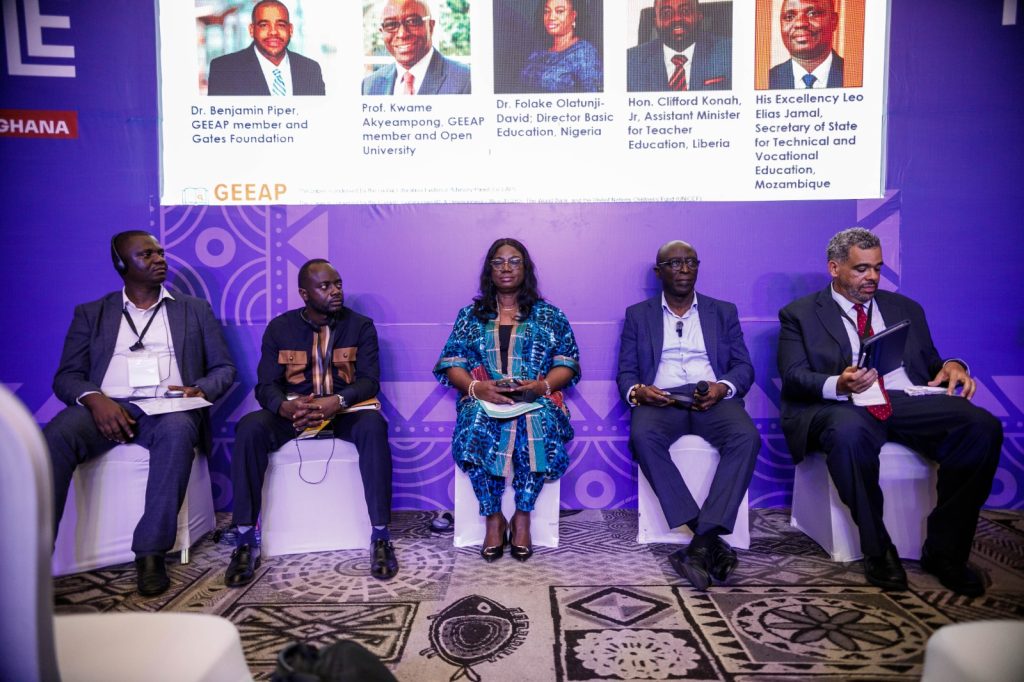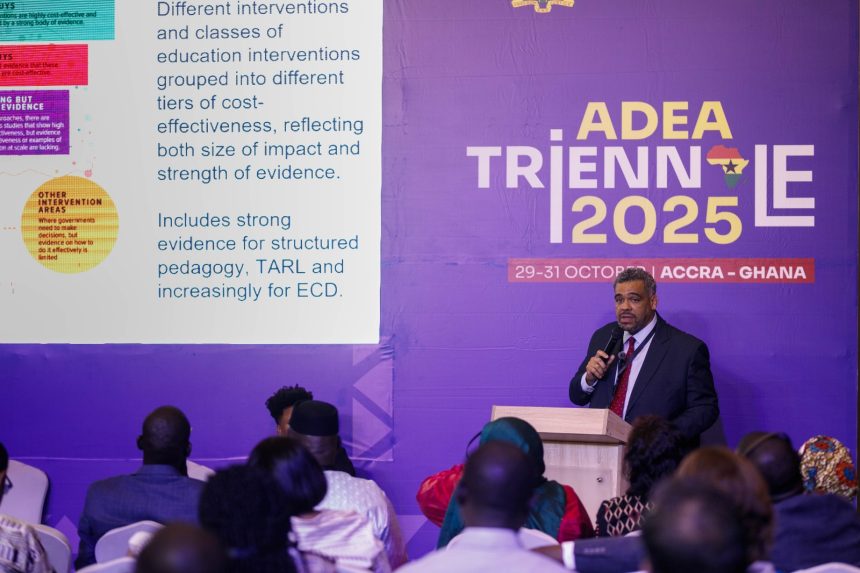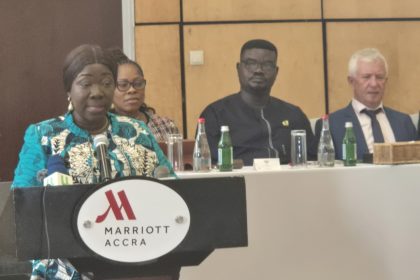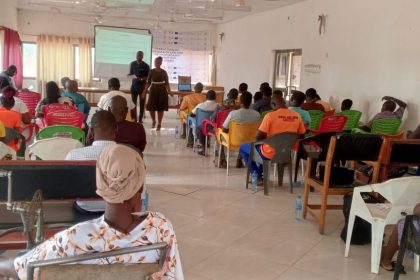Dr Benjamin Piper, Member of the Global Education Evidence Advisory Panel (GEEAP) and Gates Foundation, has charged African countries to promote evidence-based instruction to enable more children to become skilled readers.
He said this was crucial as data indicate that seven in 10 children in low and middle-income countries could not read with understanding.
Dr Piper made the call on the sidelines at the 2025 Triennale Association for the Development of Education in Africa (ADEA Triennale), in Ghana.
It was on the theme: “Strengthening Evidence Systems and Use: Pathways to Improving Foundational Learning Outcomes in Africa”.
Estimates from the Unite Nations Educational Scientific and Cultural Organisation (UNESCO), the agency of the United Nations that promotes international cooperation in education, science, and culture, reveal that four out five children aged 10 in Africa cannot read and comprehend a simple text.
Dr. Piper said learning to read was fundamental to human dignity, freedom, and development. Literacy serves as the foundation for all learning and significantly expands opportunities throughout life.
Highlighting the importance of literacy, he noted that the challenge of poor policy implementation by policymakers and teachers not using the right approach to teach among others was the cause of this global crisis.
Dr Piper explained that to make progress in this regard there was the need for countries to focus on three priority areas, by aligning instruction with evidence, explicitly, systematically and comprehensively teaching all reading skills.
“To develop these skills, children needed to be explicitly taught oral language skills, phonological awareness, systematic phonics instruction, reading fluency, reading comprehension strategies, and writing skills,” he stated.
The event saw the launch of the “Effective Reading Instruction in Low- and Middle-Income Countries: What the Evidence Shows”, report.
The new report identified the key skills pupils must learn and what teachers must learn to effectively support the acquisition of literacy.
A study that analysed data from early grade reading assessments (EGRAs) from over 500,000 students across 48 LMICs in 96 languages revealed the depth of the crisis: it showed that after three years of schooling, over 90 per cent of students can’t identify letter names or letter sounds or read simple words at expected levels.
Dr Piper said this called for investing in proven reading methods during children’s early school years, which could likely reduce the need for expensive remedial programmes later, decrease grade repetition, and lower dropout rates.
He said it was also important to support teachers with practical tools, high quality teaching materials, practical, skills-based training, and ongoing professional development.
Dr Piper said: “Instruction must be tailored to meet students at their current learning level, ensuring that struggling readers receive foundational support before moving to advanced skills.
For those struggling, specific adaptations can include individualized or small-group support, multi-sensory approaches and accessible instructional materials.”
He, thus, urged education policymakers to promote evidence-based instruction by making a national commitment, choosing appropriate languages of instruction, delivering explicit, systematic and comprehensive reading instruction, adapting instruction to language characteristics, and focusing on effective implementation to enable more children to become skilled readers.

He urged countries to visit the Global Education Evidence Advisory Panel webpage for more details on the report.
The GEEAP is an independent, multidisciplinary panel of leading global experts in education evidence and policymaking that is co-hosted by the UK’s Foreign, Commonwealth & Development Office (FCDO), UNICEF and the World Bank.
GNA






